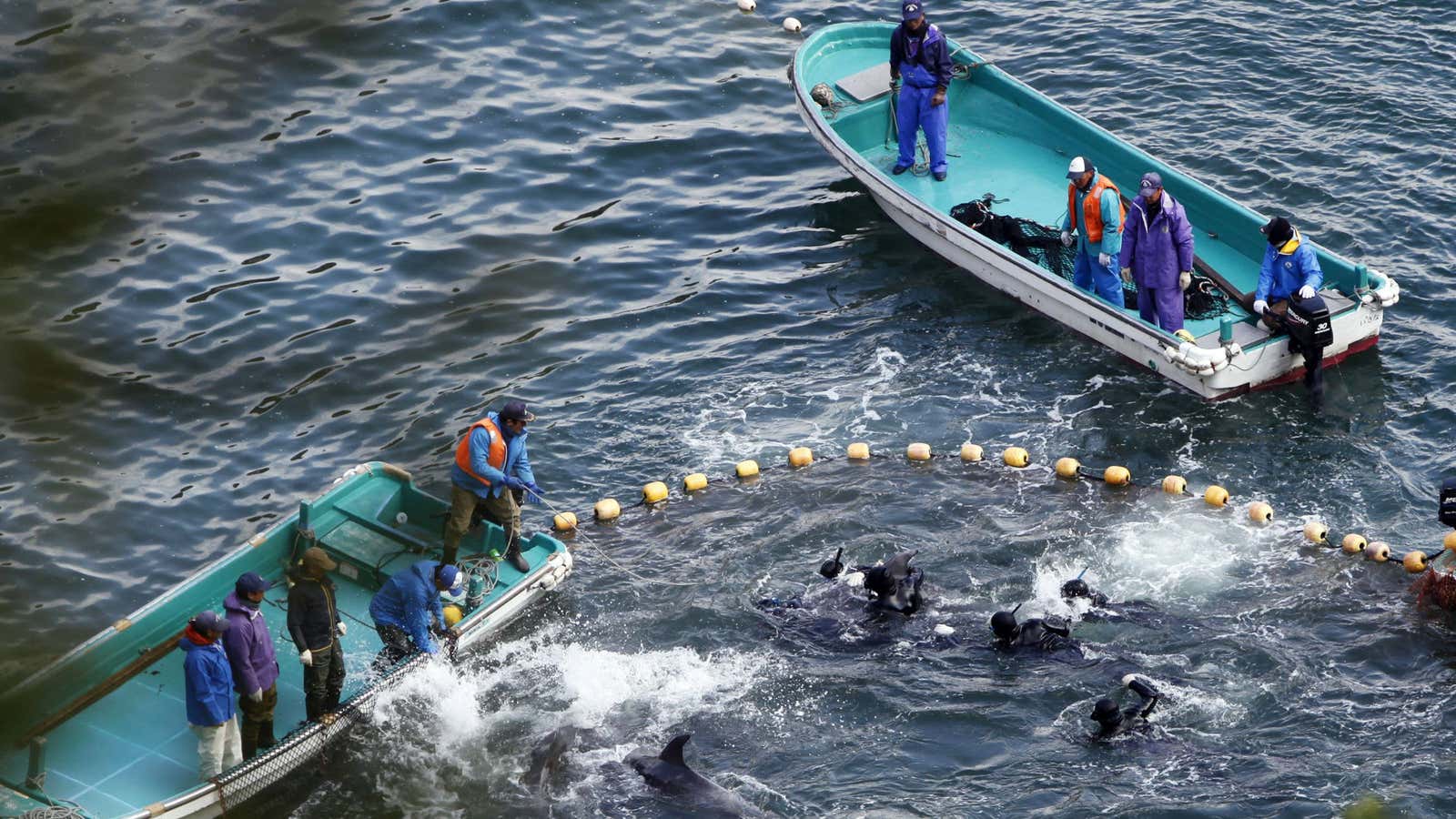It’s dolphin-killing season in Japan. As in years past, animal rights activists are mobilizing to protest the systematic slaughter by fishermen in the western prefecture of Wakayama, who herd the mammals into coves (as seen in the Academy Award-winning 2009 film “The Cove“), after which some are sold to aquariums but most are killed for meat.
Fishermen waiting in the shallow waters by the shore, some in wet suits with snorkeling masks on their faces, wrestled the dolphins into submission and tied their tails with ropes to stop them from escaping. Before the killing began, fishermen pulled a tarpaulin in front of the cove to prevent activists and reporters from seeing the killing. A large pool of blood seeped under the tarpaulin and spread across the cove.
The fight over dolphin hunting is not new. However, this year newly-appointed US ambassador Caroline Kennedy, daughter of the late president John F. Kennedy, has waded into the familiar face-off between fishermen and animal rights activists. Kennedy, who arrived at her post in November, voiced her disapproval on Twitter:
That drew the displeasure of conservative and often xenophobic Japanese web users known as “net uyoku,” who defend traditional Japanese practices against foreign criticism. The South China Morning Post reported that the angry online responses included “a poem that emphasised how delicious dolphin meat is, while several others compared consuming beef or lamb with dolphin and said that Westerners are hypocritical for condemning the traditional hunt.” Japanese government officials argued that the dolphins are not an endangered species and—unlike whales—they are not protected by international treaties. Dolphins are protected in Taiwan, however, where authorities seized 7.65 tonnes (8.4 tons) of frozen dolphin meat on Jan. 14.
Moral issues aren’t the only reason to reconsider one’s taste for a thick, fatty, dolphin steak. As pre-eminent marine predators, they accumulate high levels of toxic mercury as it works its way up the food chain—up to 250 times than the Japanese government’s recommended maximum, according to the non-profit Environmental Investigation Agency. Pregnant women are advised to eat no more than 80 grams (2.8 oz) of bottlenose dolphin every two months.




